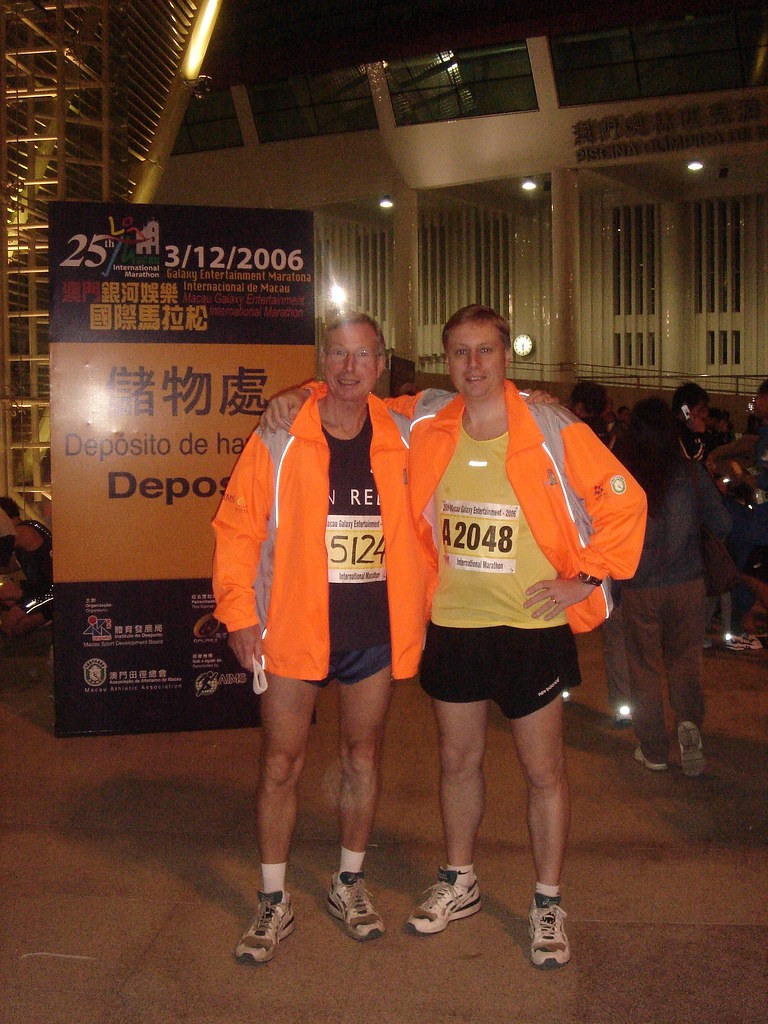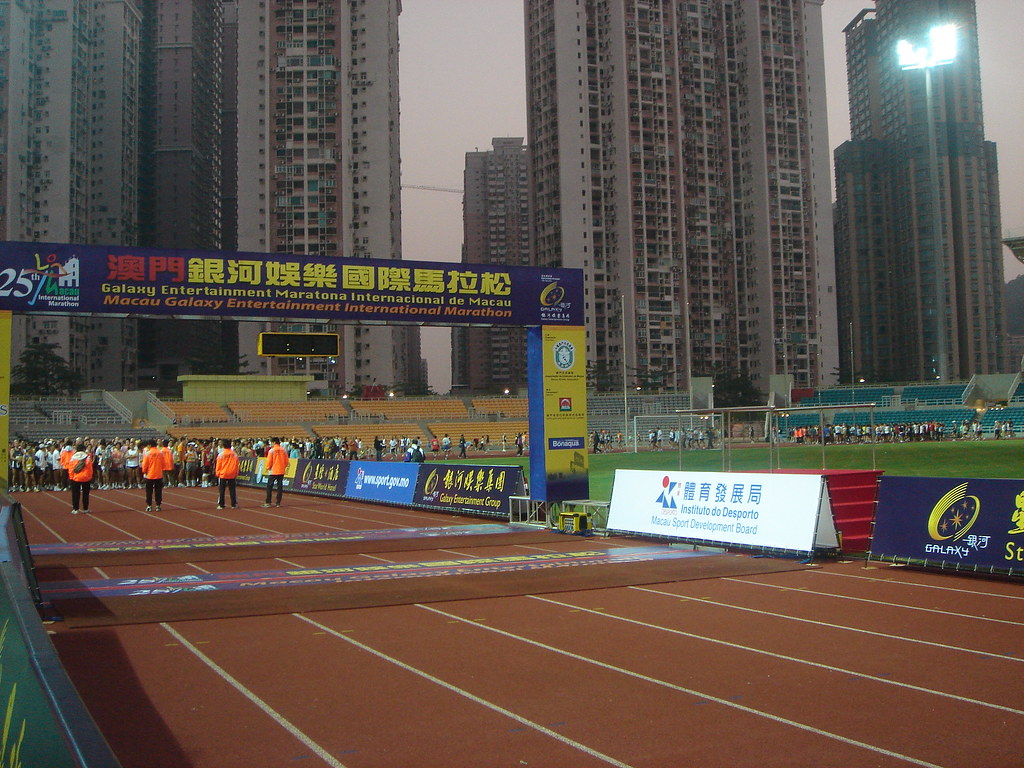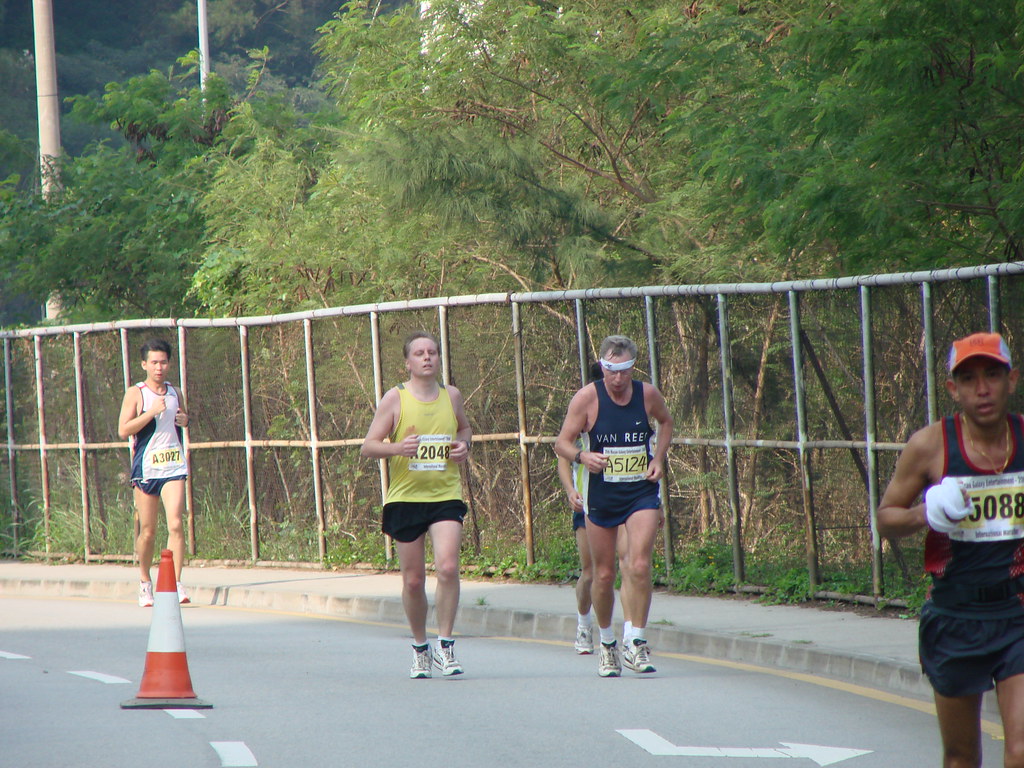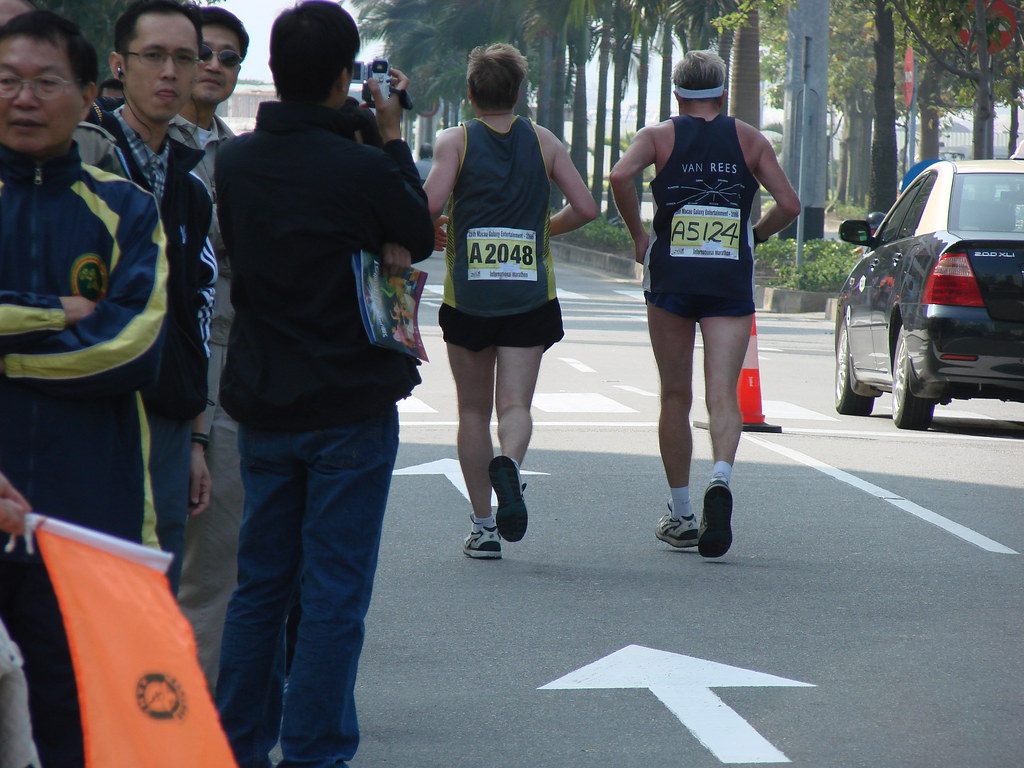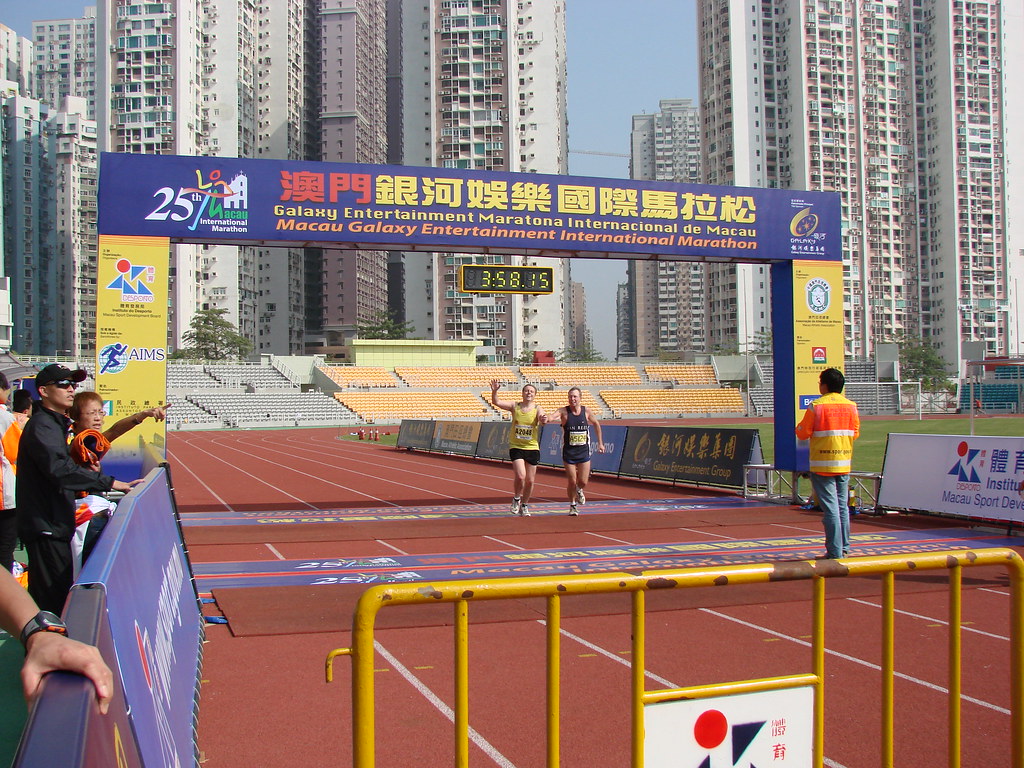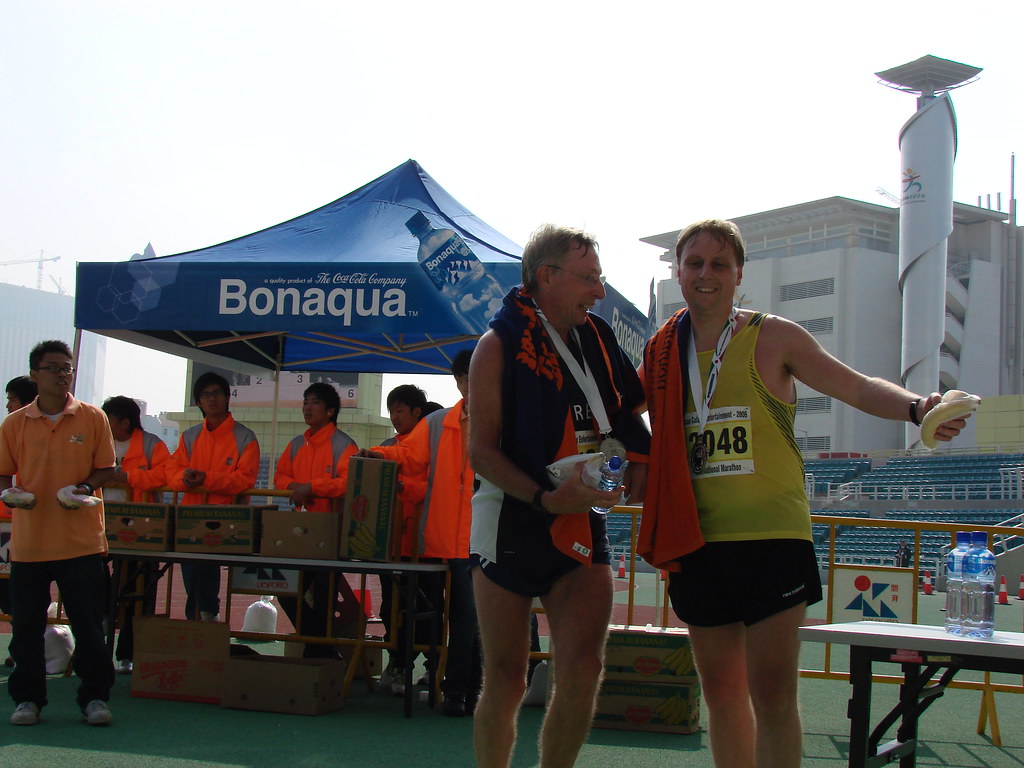 Yesterday’s Macau marathon was a very difficult one, as I mentioned in my last post. I knew in advance that it would not be easy, because I hardly trained for the event. But I did not expect it would be this hard. The combination of warm weather, a lot of wind, hills and bridges, and not enough sport drink and food along the road can be killing. And that the marathon course was not an easy one, as can also be seen from the winning time: the number one runner ‘only’ finished in 2:18. This afternoon I heard that in an article in today’s South China Morning Post the winner said that he trained in the mountains because he knew it would be a hilly course. I wish someone had told me in advance (or maybe not, I might have backed out :-).
Yesterday’s Macau marathon was a very difficult one, as I mentioned in my last post. I knew in advance that it would not be easy, because I hardly trained for the event. But I did not expect it would be this hard. The combination of warm weather, a lot of wind, hills and bridges, and not enough sport drink and food along the road can be killing. And that the marathon course was not an easy one, as can also be seen from the winning time: the number one runner ‘only’ finished in 2:18. This afternoon I heard that in an article in today’s South China Morning Post the winner said that he trained in the mountains because he knew it would be a hilly course. I wish someone had told me in advance (or maybe not, I might have backed out :-).
The race started off pretty good. My dad and I managed to get into the first row at the start, right behind the invited athletes (mainly from Kenya, China and the DPRK). At the start they literally sprinted away, but we had decided not to burn a lot of energy right away and started at a pace just over 12 km/h. This worked well, and the first 5km we ran in 23:54. At the 10 km mark the clock was at 49:10, so we managed to keep a very steady pace (even though the inclines can slow you down a lot). The first hour we ran 12.2 km, and it all went quite easy. At the half marathon point (21.1 km) we clocked 1:44:44 and we both still felt quite energetic.
A few kilometers later the long bridge from Taipa to Macau suddenly seemed a lot higher than during the first round, but I managed to recover on the way down. I was very glad to get some water (the organization did not provide energy drinks, which is not smart in my opinion) at the 25 km point, but not far after that I suddenly felt very weak, all energy seemed to be gone. I did not know what hit me, but I had to walk a bit. After getting a sponge dipped in cold water my strength came back and I continued running, but not long after that the problem returned. I felt sick but did not want to give up of course. Luckily at 30 km there was another water post, where I drank about 1 liter of water. I then walked up the bridge (fast walking, not much slower than the runners) and on top I felt good again.
At that point I realized that I was probably dehydrated, but I still had 12 km to go, and it was only getting warmer in the full sun (not much shade on the route). But I never give up and so tried to continue running. At 33 km my wife was standing at the road side with a bottle of sport drink and a banana. That was the fuel I needed and within 2 minutes after drinking the bottle I felt much better and continued running. At the next water post (35 km) I had another liter of water and continued to run to the turning point at Macau airport. From there it was only 5 km to the finish line, and I knew I could do it. My dad kept on pushing me, which is what I needed. At that point your body is screaming to stop, everything hurts so much – your muscles, your feet, even your lungs – but you should focus on something else and try to forget about it. It is basically a test of will power, your mind should be stronger than your body.
My dad had calculated we could still finish within 4 hours and although I told him I did not want to think about that, in my mind I decided to go for that. So I blocked out the pain, and on the final kilometers we even managed to pass several other people. The final kilometer of the race was the longest of the whole marathon, but when we entered the stadium and I saw 3:57 on the clock I knew we had done it. One minute later we crossed the finish line together! I left the track almost immediately to cool off inside, while drinking another liter of water. But then the world suddenly started to turn and I had to hold on to the wall in order not to collapse. Because my dad and wife were still outside I decided to try to walk back to them, so that they could catch me in case I collapsed. I still managed to get onto a seat, where I ate a banana and drank a lot more water. That helped, and 20 minutes later I was feeling fine again. Well, fine is maybe not the right word, because my muscles were completely cramped and I could not even get up from my seat anymore. Today is even worse, without help I cannot get off the couch at home and in the office today I only climbed the stairs to the second floor twice (I only get can downstairs walking backwards very slowly).
But I am glad that I finished the race in a reasonable time, and even more happy that I could do this together with my dad. Thanks dad, it was a painful and tiring but nevertheless great experience!


